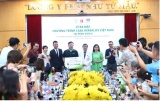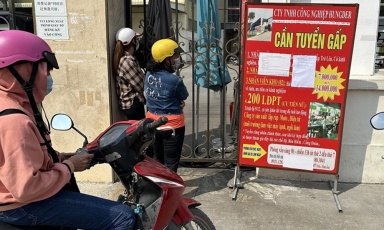COVID-19 orphans in HCM City receive Tet gifts
Nearly 1,500 Tet gifts were presented to children orphaned by the COVID-19 pandemic in Ho Chi Minh City, and the southern provinces of Dong Nai and Binh Duong from January 16-18 under a programme launched by the Hope Foundation.

HCM City, the epicenter of the fourth coronavirus wave, reported more than 1,400 children losing parents to COVID-19.
The programme is carried out with the hope of bringing a warm Tet (Lunar New Year) festival to the children, she added.
Around 1,100 packages were delivered to children in different districts of HCM City, and nearly 400 others were given out in neighbouring Binh Duong and Dong Nai provinces.
Each package consists of 1 million VND (44 USD) in cash, a schoolbag and food items.
Since its inception five years ago, the foundation run by VnExpress e-newspaper and FPT Group has given out more than 5,000 gifts worth over 5 billion VND to needy children and poor, disabled and vulnerable people./.VNA
TAG:












